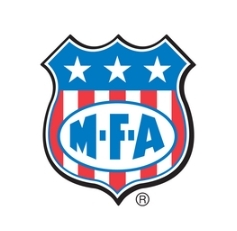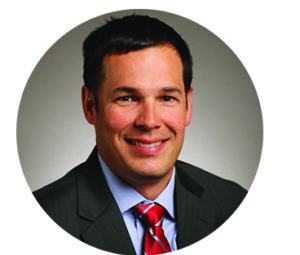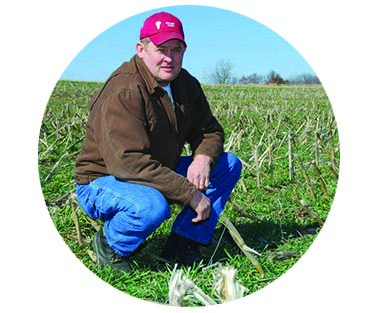SMNS Success Stories

“MFA prides itself on implementing our core values throughout the company. The values of accountability, innovation and technology, customer partnering, and stewardship naturally line us up with the principles of 4R Nutrient Management. Utilizing the 4R principles in our business model allows us the opportunity to work with our member-owners to plan nutrient applications and make data driven decisions. These conversations can initiate more in depth discussions of implementing conservation practices across the farm. We as a retailer are excited about bringing that dialogue to our trade territory.”
Dr. Jason Weirich,
VP of Sales and Agronomy, MFA

“We want to share with our farmers new technologies and new ways of doing things that ultimately mean a more sustainable investment for them and the next generation that they bring to the farm. We want to make sure that our farms are productive and sustainable for our kids and grandkids.”
Director of Public Policy,
Director of Environmental Programs, Missouri Soybean

“We have been no-tilling corn and beans for over 25 years. In 2011 we started using cover crops. We have used grid sampling in the past but with soil health improving they really compliment each other. Costs have gone down while yields have increased. It is so exciting to see soil texture change and the soil come alive.”
Kenny Reichert,
Reichert Farms

“By using 4R practices on our operation we have began building a soil health foundation which gives our land the opportunity to produce a sustainable crop in challenging environments while minimizing any downstream impact on our neighbors and the public who enjoy the water and nutrient resources that we are trying to maintain and protect.”
Ryan Britt,
Britt Farms Inc. and 2022 Leopold Award Winner
Sustainable investments for you and the next generation
Farmers and businesses across Missouri are implementing 4R practices. Below are just a few of the great advantages of using 4R Nutrient Stewardship Practices:
- Crop fertilization program consisting of right fertilizer source, applied at the right rate and right time and in the right place.
- An efficient, effective, science-based use of plant nutrients to achieve agronomic, economic, social and environmental benefits.
- Optimized yield with reduced nutrient losses from the field by matching crop requirements and nutrient supply.
- Proper nutrient management promotes crop growth and improves soil health.
- Enhanced soil organic matter levels by producing more root and crop residue biomass.
- Maximize the ability of the soil to provide all essential nutrients in adequate amounts relative to plant need.
- Efficient use of water through the combined interaction of soil, nutrients and water.
- Efficient plant nutrient uptake and reduced loss to the environment by keeping nutrients in the root zone.
- Maximize fertilizer ROI by minimizing nutrient losses and increasing productivity.
- Framework encourages discussion between farmers and crop advisers about improving fertilizer management practices.
